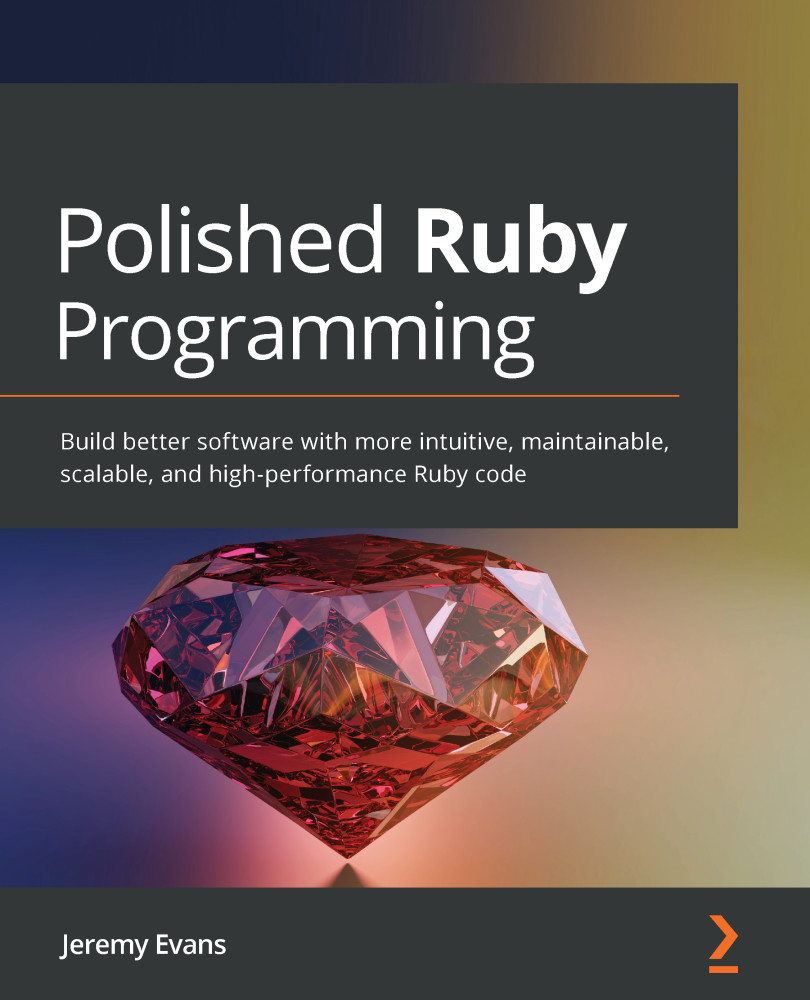-
Book Overview & Buying

-
Table Of Contents

Polished Ruby Programming
By :

Polished Ruby Programming
By:
Overview of this book
Anyone striving to become an expert Ruby programmer needs to be able to write maintainable applications.
Polished Ruby Programming will help you get better at designing scalable and robust Ruby programs, so that no matter how big the codebase grows, maintaining it will be a breeze.
This book takes you on a journey through implementation approaches for many common programming situations, the trade-offs inherent in each approach, and why you may choose to use different approaches in different situations.
You'll start by refreshing Ruby fundamentals, such as correctly using core classes, class and method design, variable usage, error handling, and code formatting. Then you'll move on to higher-level programming principles, such as library design, use of metaprogramming and domain-specific languages, and refactoring. Finally, you'll learn principles specific to web application development, such as how to choose a database and web framework, and how to use advanced security features.
By the end of this Ruby programming book, you’ll be a well rounded web developer with a deep understanding of Ruby.
While most code examples and principles discussed in the book apply to all Ruby versions, some examples and principles are specific to Ruby 3.0, the latest release at the time of publication.
Table of Contents (23 chapters)
Preface
Section 1: Fundamental Ruby Programming Principles
 Free Chapter
Free Chapter
Chapter 1: Getting the Most out of Core Classes
Chapter 2: Designing Useful Custom Classes
Chapter 3: Proper Variable Usage
Chapter 4: Methods and Their Arguments
Chapter 5: Handling Errors
Chapter 6: Formatting Code for Easy Reading
Section 2: Ruby Library Programming Principles
Chapter 7: Designing Your Library
Chapter 8: Designing for Extensibility
Chapter 9: Metaprogramming and When to Use It
Chapter 10: Designing Useful Domain-Specific Languages
Chapter 11: Testing to Ensure Your Code Works
Chapter 12: Handling Change
Chapter 13: Using Common Design Patterns
Chapter 14: Optimizing Your Library
Section 3: Ruby Web Programming Principles
Chapter 15: The Database Is Key
Chapter 16: Web Application Design Principles
Chapter 17: Robust Web Application Security
Assessments
